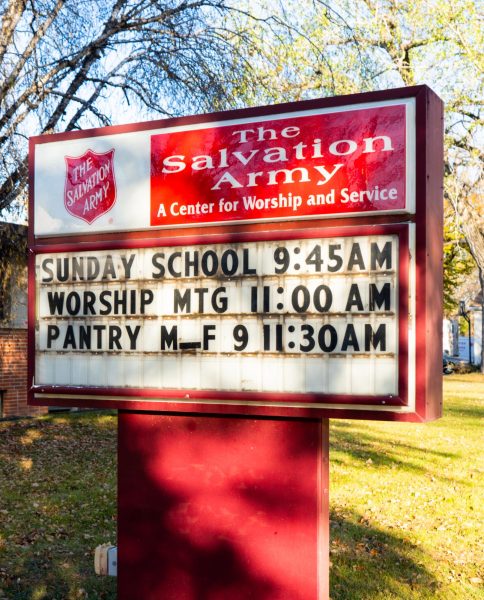A world of acceptance: The importance of interfaith relations
How many of you have heard of Interfaith Week? What does interfaith even mean?
Interfaith dialogue is the cooperative interaction between people of different religions on all levels.
However, what does that actually mean? Quite simply it means focusing more on what you have in common with people of different religions, than what makes you different.
It’s very easy for people to develop an us vs. them mentality. People of all religions — and even people without religions — are capable of falling prey to this type of behavior.
Christians, Muslims, atheists and many other religious or nonreligious groups often have various individuals that give the rest a bad name.
Any group unified by a singular ideology is capable of having members that do more harm for it’s cause than good.
The Westboro Baptist Church has done nothing but inspire hatred and mockery. Islamic extremists have inspired far more hatred and (for the bravest amongst us) far more satire.
Yet, it’s not just the extremists who damage the name. Sometimes rational people can hurt their own cause by going about it in the wrong way.
Often in these groups we see those who disagree with us as enemies. After all, they don’t agree with my messages and goals, so therefore they must be working against me.
This mentality seems especially present in atheists and Christians. Atheists and Christians often believe each other to be complete opposites due to how many things we disagree on.
Yet for all of our differences, we are still people. And as people, even with seemingly massively different opinions, we may have more in common than we might think.
Both atheists and most religious people seek an end to religious extremism that terrorizes this world, we both want to see less misery and suffering.
One person who seeks to find common ground with between the religious and the non religious is Chris Stedman, interfaith activist who serves as the executive director of the Yale Humanist Community at Yale University.
Stedman has written a book called Faitheist, in which he describes his experience both as a “born again” Christian and a “new atheist” and how he was affected by these experiences.
For atheists, presenting an exclusively critical view of Christianity is a fruitless endeavour. Whether or not the criticisms are valid is irrelevant if your only goal is to tear down and destroy. Stedman points out in his book that hostility towards Christianity only ends up destroying relationships rather than building them.
Yet when we find common ground and work together great things can happen.
Those of you interested in Stedman’s message may be pleasantly surprised to hear that he is coming here to UND for interfaith week to speak on his experience as a Christian, an atheist, and also a faitheist.
The circumstances behind his invitation to UND, are a perfect example of what can be accomplished through interfaith dialogue. Chris Stedman was invited to UND as part of a collaboration between the Freethinkers of UND, the Christus Rex center, and the Ten Percent Society. The Freethinkers are the campus secular group, the Christus Rex is a Lutheran center and the Ten Percent Society is an LGBT group.
All these people coming together for one person is not common (although it should be more common). Christians stereotypically are against both atheists and homosexuals, so for a Christian group especially to collaborate with both groups shows a truly progressive nature and truly noble desires of promoting diversity rather than division.
If there are those of you out there interested in finding common ground between the seemingly insurmountable divide of the religious and nonreligious, I highly recommend going to see Chris Stedman when he speaks at UND on Feb. 2.
It will certainly be an educational experience. There can be a lot to learn from someone who has been on both ‘sides’ and discovered a bridge.
Religion is a touchy subject, and not one that many people enjoy delving into. However, Stedman is not focusing on his religious differences from you. Stedman is talking about why religious differences don’t have to keep us from accomplishing great things together.
Mike Rauser is a staff writer for The Dakota Student. He can be reached at [email protected].






